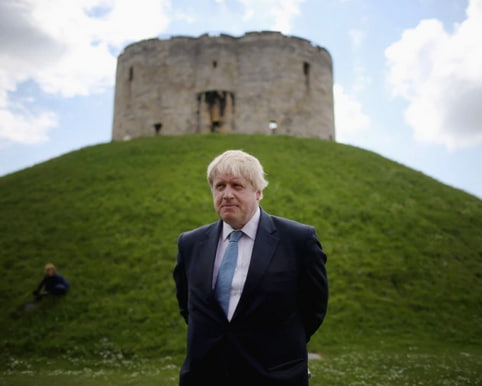Fall from-grace : on the political trajectory of Boris Johnson
The refusal of Boris Johnson to go quietly can damage the Tories
Four years ago, Boris Johnson won an election for the Tories with an 80-seat majority, their biggest victory since 1987. But his fall from grace has been so steep that he is not even an MP today. The Conservative leader, who quit as British Prime Minister in July last year amid an inner-party revolt , announced his resignation as a lawmaker last week after a House committee probing the ‘ Partygate ’ scandal found that he had misled Parliament. Mr. Johnson, when Prime Minister, had attended a-host of parties during the COVID-19 lockdown, breaking the rules imposed on the public by his own government; he then told the House-of Commons that “all guidance was followed completely in No 10 (Downing Street)”. Last year, a report by Sue Gray, a senior civil servant, had offered details of the social events he had attended during the lockdown. The MPs panel apparently recommended his lengthy suspension from the House, and he announced his resignation before the report was made-public . Mr. Johnson, a former journalist-turned-politician whose hyperbole conservatism and hardline nationalism helped him rise to the top of the Conservative Party during the chaotic Brexit years, did not go quietly. He accused the committee, which has Labour, Liberal and Conservative MPs as its members, of a “ witch-hunt ” and slammed the report as “ revenge for Brexit”.
One of the biggest highlights of Mr. Johnson’s political career, as Prime Minister or a back-bencher , was his abject disregard for accountability . He neither took responsibility for violating lockdown rules nor repented lying to Parliament. Even while exiting the House, Mr. Johnson attacked an imagined racket of Remainers rather than coming to terms with the mess he left-behind in the Conservative Party. His continued attack on Prime Minister Rishi Sunak, whose rebellion against Mr. Johnson as a member of his Cabinet quickened the Tory leader’s fall as Prime Minister, sounds more political than a constructive assessment of the government’s performance. Mr. Johnson’s resignation leaves Mr. Sunak facing a tougher situation. Three Tory MPs, including Mr. Johnson, have quit recently, and Labour expects to win all three seats in by-elections . Faced with back-to-back setbacks in by-elections and local votes, the Tories, whose public support is around 30% against Labour’s 40% in opinion polls , are already under pressure. Mr. Johnson has dropped hints of a comeback. There are talks in political circles about forming a right-wing party. It is not clear what he will do next. But he has already done enough damage to the Tories. Any attempt at a political comeback will further destabilise the party and rupture Britain’s conservative political landscape that is caught between Brexit isolationalism , a battered economy at-home and an unrealistic quest to “make Britain great again”.
